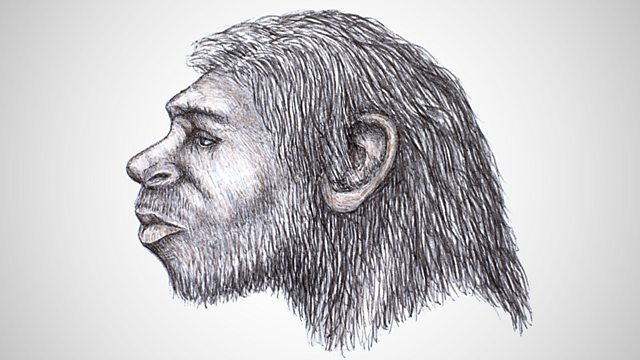The Neanderthals
Melvyn Bragg and guests discuss the Neanderthals: who they were, how they lived, and how we are related to them.
Melvyn Bragg and his guests discuss the Neanderthals.In 1856, quarry workers in Germany found bones in a cave which seemed to belong to a bear or other large mammal. They were later identified as being from a previously unknown species of hominid similar to a human. The specimen was named Homo neanderthalis after the valley in which the bones were found.This was the first identified remains of a Neanderthal, a species which inhabited parts of Europe and Central Asia from around 400,000 years ago. Often depicted as little more advanced than apes, Neanderthals were in fact sophisticated, highly-evolved hunters capable of making tools and even jewellery.Scholarship has established much about how and where the Neanderthals lived - but the reasons for their disappearance from the planet around 28,000 years ago remain unclear.With: Simon Conway MorrisProfessor of Evolutionary Palaeobiology at the University of CambridgeChris Stringer Research Leader in Human Origins at the Natural History Museum and Visiting Professor at Royal Holloway, University of LondonDanielle SchreveReader in Physical Geography at Royal Holloway, University of LondonProducer: Thomas Morris.
Last on
Broadcasts
- Thu 17 Jun 2010 09:00Βι¶ΉΤΌΕΔ Radio 4
- Thu 17 Jun 2010 21:30Βι¶ΉΤΌΕΔ Radio 4
Featured in...
![]()
Prehistoric—In Our Time
Browse the Prehistoric era within the In Our Time archive.
![]()
Science—In Our Time
Scientific principles, theory, and the role of key figures in the advancement of science.
In Our Time podcasts
Download programmes from the huge In Our Time archive.
The In Our Time Listeners' Top 10
If you’re new to In Our Time, this is a good place to start.
Arts and Ideas podcast
Download the best of Radio 3's Free Thinking programme.
Podcast
-
![]()
In Our Time
Melvyn Bragg and guests discuss the ideas, people and events that have shaped our world.



